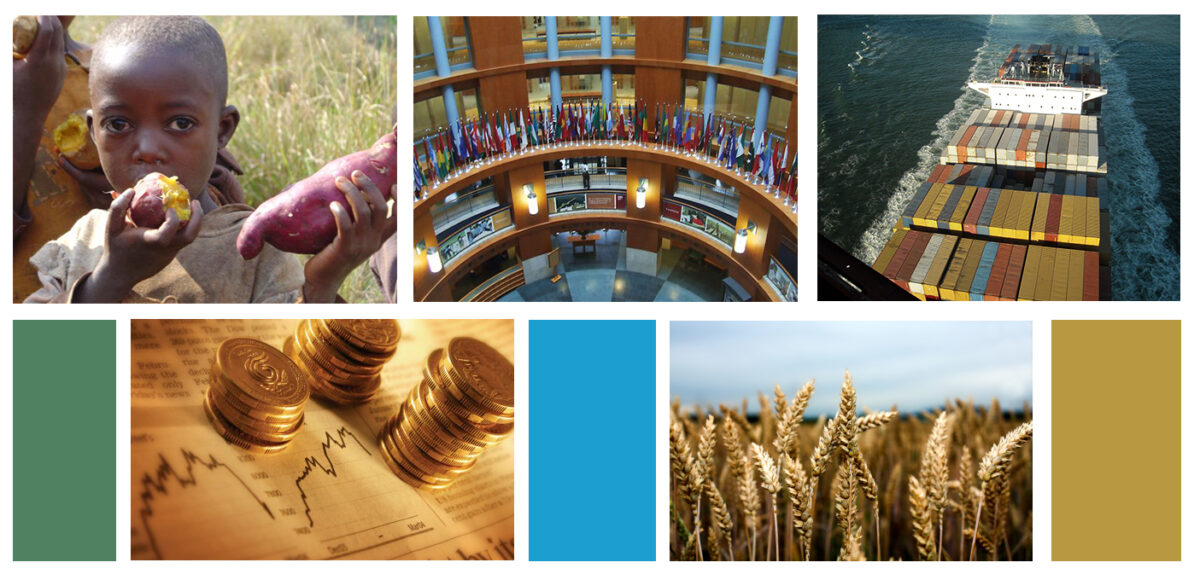Proposals are due no later than May 15, 2016
Colloquium Dates: February 22-24, 2017
Venue: University of Hawai`i at Mānoa
Fulbright Canada, and the Center for the Study of Canada at the State University of New York College at Plattsburgh, in partnership with the University of Hawai`i at Mānoa, are pleased to announce an international scholarly colloquium aimed at addressing critical contemporary social, political and economic issues. Our 2017 colloquium sets out to comprehensively examine and evaluate the impact of the proposed Trans-Pacific Partnership (TPP) on Canada, the U.S., and its foreign economic policies and priorities. The colloquium, entitled Canada, the United States, and the Trans-Pacific Partnership: Change and Challenge in the Brave New World of International Economic Cooperation,” will be convened at the University of Hawai`i at Mānoa, from February 22-24, 2017.
Dr. Michael Hawes, CEO of the Foundation for Educational Exchange between Canada and the United States of America and Executive Director of Fulbright Canada, Dr. Christopher Kirkey, Director of the Center for the Study of Canada, and Dr. Denise Eby Konan, Dean of the College of Social Sciences, University of Hawai`i at Mānoa, will coordinate the colloquium. We enthusiastically invite submissions for scholarly papers, within a range of perspectives, from doctoral candidates, junior academics, established scholars, and working professionals from across the international community. The deadline for proposals is May 15, 2016.
The University of Hawai`i at Mānoa, founded in 1907, and located in beautiful Mānoa Valley just outside of downtown Honolulu on the island of Oʻahu, is the site of the Daniel K. Inouye Center for Democratic Leadership (DKI Center), currently under development. The Center will advance public service leadership, democratic ideals, and global awareness through visiting and resident experts, communications programs, seminars, public engagement programs, Congressional Archives, K-12 educational programs, exhibitions, fellowship programs and civic engagement initiatives. The colloquium is being organized within the spirit of the DKI Center initiative.
Background
The Trans-Pacific Partnership (TPP), a large-scale trade agreement that was negotiated between twelve Pacific Rim countries, including Canada, the United States and Mexico, was concluded on October 5, 2015, after seven years of fairly intense negotiations. The ratification process is currently under way. It has been characterized by governments in North America as the natural next step in regional economic integration and the path to greater innovation and prosperity. The agreement’s stated goal is to “promote economic growth; support the creation and retention of jobs; enhance innovation, productivity and competitiveness; raise living standards; reduce poverty; and promote transparency, good governance, and enhanced labor and environmental protections.”
The strong push for the TPP stems out of several factors. First, multilateral negotiations within the context of the World Trade Organization’s (WTO’s) Doha Round of 2001 have largely stalled with no conclusion. In the past decade, there has been an acceleration of regional trade agreements as a result. Second, the TPP advances a ‘rules-oriented’ approach that includes many of the measures that the U.S. and Canada have sought in trade negotiations, including high standards for intellectual property rights, foreign direct investment, services liberalization, and internet access to name a few. Third, the TPP also plays a role in a ‘rebalancing’ strategy that on the one hand strengthens North American economic ties within the Asia Pacific and on the other hand provides a counterbalance to the influences of the missing partner, China.
The TPP would expand Canada’s preferential access to the U.S. market enjoyed under the North America Free Trade Agreement (NAFTA) and it could well provide new export opportunities with other signatories, such as Vietnam and Japan. The TPP, like the FTA and NAFTA before it, has raised some concerns among environmentalists, trade unionists, public health professionals, and other activists, based on the expansiveness of the agreement, the perceived secrecy of the negotiations and the potential for significant change.
Based on the fact that it is a trading nation, whose prosperity is linked to enhanced access to foreign markets, Canada is expected to ratify the TPP. Prior to the most recent election, then Canadian Prime Minister Stephen Harper stated that he expected “signatures on the finalized text and deal early in the new year, and ratification over the next two years.” The newly elected Prime Minister, Justin Trudeau, has promised to hold parliamentary hearings on the sweeping deal and consult with a large number of stakeholders before supporting ratification. Having said that, Mr. Trudeau campaigned on a platform that included a more expansive foreign policy and a more open trade policy.
In June 2015, the U.S. Congress passed ‘fast track’ or trade promotion authority (TPA) that was signed into law by President Obama, thus providing him impermanent power to negotiate trade deals to be ratified by Congress (or not) without amendment. 3 Positioned as part of his ‘pivot to Asia,’ President Obama touts the strong labor and environmental standards and progressive nature of this agreement as being a model for the rules that the U.S. seeks in future agreements.
The TPP has generated considerable debate among and between those who see the agreement as a very positive approach to economic growth and a necessary next step in the integration of global trade and capital markets and those who see the many challenges that could arise from an agreement that provides for the freer movement of goods, services, and jobs and promises to reduce regulatory restrictions.
Interdisciplinary Scope
The colloquium is broadly interested in submissions that directly explore the intersection between Canadian foreign policy priorities and domestic policy interests as they relate to the TPP. Submissions from political scientists, international relations specialists, historians, economists, trade policy experts, sociologists, scholars interested in technology, and culture, as well as those that purposely incorporate a distinctly inter/intra/multidisciplinary perspective are strongly encouraged.
Colloquium Participation, Timing and Results
We invite papers that examine both the domestic and international dimensions of the TPP for Canada and the United States and the Canada-U.S. relationship. It is most appropriate that the colloquium take place in Hawaii, which is located in the geographic center of the proposed 12-member trade pact.
If you are interested in submitting a proposal for the colloquium, please forward an abstract, not to exceed 300 words, to the colloquium conveners. Your submission should clearly state the central argument of the proposed paper, set out the theoretical approach, identify the empirical evidence to be examined, and provide a working title for the paper. In addition, we would ask that all submissions include a current curriculum vitae for the author(s). Submissions should be sent electronically to the conference coordinators (mhawes@fulbright.ca, kirkeycj@plattsburgh.edu), not later than May 15, 2016. An academic panel will review all submissions, with decisions being made and individuals contacted not later than May 31, 2016. A maximum of 20 proposals will be accepted for the colloquium. At least two panels will be dedicated to scholarly presentations from University of Hawai`i at Mānoa faculty. Invited participants will be provided with detailed guidelines for their papers (length, format, footnote/reference style requirements, etc.).
Confirmed participants will be required to submit their draft contributions by November 30, 2016. We intend to circulate all of the papers to all of the contributors in advance – in early February 2017, thereby allowing each of the authors the opportunity to read the work of their colleagues. This colloquium is designed in such a way that we do not 4 expect authors to ‘present’ their work in a traditional fashion. Rather, we are proposing that each author(s) prepare and deliver a formal evaluative commentary on another paper. This paper will be identified by the colloquium conveners, and worked out in consultation with the authors.
As a practical matter, each of the panel sessions will include a formal commentary followed by a brief response by the author for each of the papers, followed by a general discussion involving all of the participants. This model will allow us to keep the group small and focused and allow for maximum individual participation.
By the close of March 2017, contributors will be provided with a formal written evaluation/analysis of their contribution, reflecting the comments and suggestions of your assigned commentator as well as those of the colloquium coordinators, Drs. Hawes and Kirkey. Contributors will have until May 31, 2017, to undertake any revisions and to electronically re-submit their papers. Selected proceedings from the colloquium will be edited (by Hawes and Kirkey) and published as a special thematic issue of Canadian Foreign Policy Journal (CFPJ). CFPJ, Canada’s leading journal on international affairs, is a fully peer-reviewed interdisciplinary journal published three times a year by the Norman Paterson School of International Affairs (NPSIA) at Carleton University. Canadian Foreign Policy Journal (CFPJ), Established in 1992, the journal’s international advisory and editorial boards reflect diverse political, disciplinary and professional perspectives. Contributors are drawn from Canada and around the world. Essays are fully referenced, peer-reviewed, authoritative yet written for the specialist and non-specialist alike. Readers of the journal include government officials, academics, students of international affairs, journalists, NGOs, and the private sector. http://www.tandfonline.com/toc/rcfp20/current.
The editors further anticipate publishing a larger number of essays from the colloquium as an edited scholarly book.
Colloquium Support for Participants
To facilitate involvement in this project, Fulbright Canada, the Center for the Study of Canada, and the University of Hawai`i at Mānoa, are pleased to be able to provide colloquium participants the following support:
- an opening evening reception on Wednesday, February 22, 2017;
- breaks and lunch, Thursday and Friday, February 23 and 24, 2017;
- hotel lodging in Waikiki for four nights (arrival February 21st and departure on February 25th) – a complimentary breakfast will be provided; and,
- an honorarium of $325 to help offset travel expenses.
Please note that the conference organizers are also currently exploring the possibility of a dedicated cultural excursion on Oʻahu.
We trust that you will agree that this is an exciting initiative. We encourage you to contact us with any inquiries you may have. We look forward to receiving your proposal!

